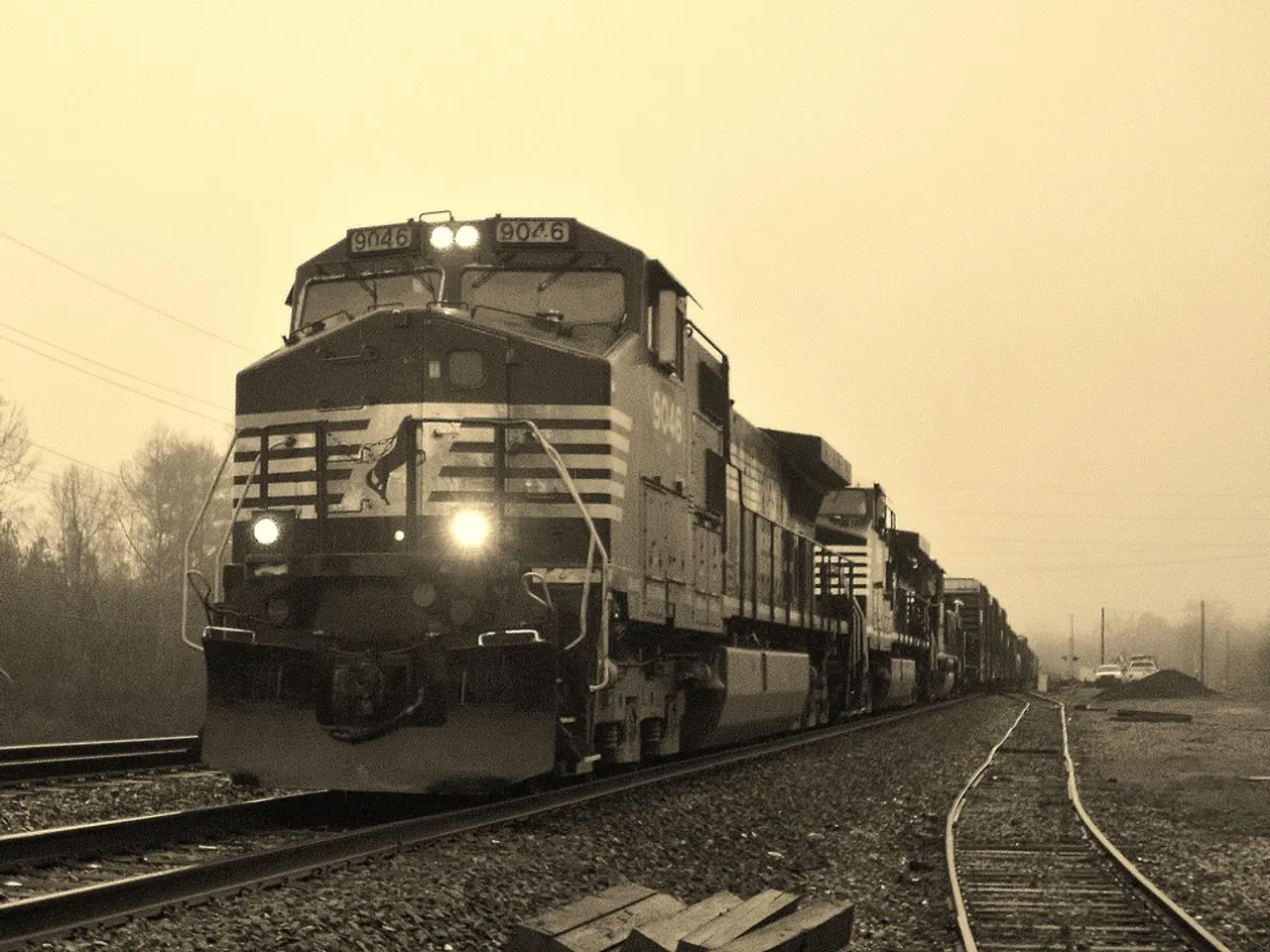Stable alternative trafficflow remains between Hamburg and Berlin via railways
Headline: Hamburg-Berlin Railway Line Undergoes Nine-Month Renovation, Affecting Commuters in Brandenburg
The Hamburg-Berlin railway line, a crucial artery connecting the two major cities, will undergo a nine-month renovation starting August 1, 2025, and ending April 30, 2026. This extensive project aims to modernize the overloaded and dilapidated track network, focusing on upgrading over 180 kilometres of track, around 200 switches, six new transfer points, and modernizing 28 stations [1][3][4].
During the renovation, Deutsche Bahn will completely close the 278-kilometre line. As a result, commuters in Brandenburg who rely on regional traffic between Berlin and Wittenberge will be affected. Only replacement buses will run to and from Wittenberge, usually at half-hour or hourly intervals and taking longer than a regular regional train would [1]. The journey from Wittenberge in northwestern Brandenburg to Berlin's main station, which usually takes one and a half hours, will now take three and a half hours.
In a broader plan, DB InfraGO AG is aiming to renovate approximately 4,000 kilometres of heavily used lines across Germany. These upgrades will be spread over multiple years, with about 40 corridors targeted for renovation by 2036 [2]. The Hamburg-Berlin project is just the beginning, with renovations on additional corridors scheduled for 2026 and 2027, followed by more corridors from 2028 onwards.
Meanwhile, long-distance traffic is running according to plan during the renovation. ICE and IC trains have been rerouted via Stendal and Uelzen. The rerouted trains are running less frequently and take about 45 minutes longer than usual [1]. Cables, track switch drives, and magnets for controlling signals will be removed during the construction [1].
The railway company is collecting feedback and making adjustments to the replacement service. The replacement service consists of 170 vehicles on 28 lines [1]. Construction trains are delivering materials from approximately 130 construction sites along the line to where they are needed [1].
Commuters are advised to plan their journeys accordingly and check the latest updates on the Deutsche Bahn website for the most accurate information. This renovation is a significant step towards modernizing Germany's rail infrastructure and improving the overall travel experience for passengers.
- The extensive railway renovation, including the upgrade of the Hamburg-Berlin line and approximately 4,000 kilometers of heavily used lines across Germany, is likely to require substantial investment from the finance industry.
- With the Hamburg-Berlin railway line undergoing a nine-month renovation, temporary disruptions in the transportation sector, particularly in Brandenburg, may have a potential impact on industries that rely heavily on commuters and regional traffic, such as retail and manufacturing.




